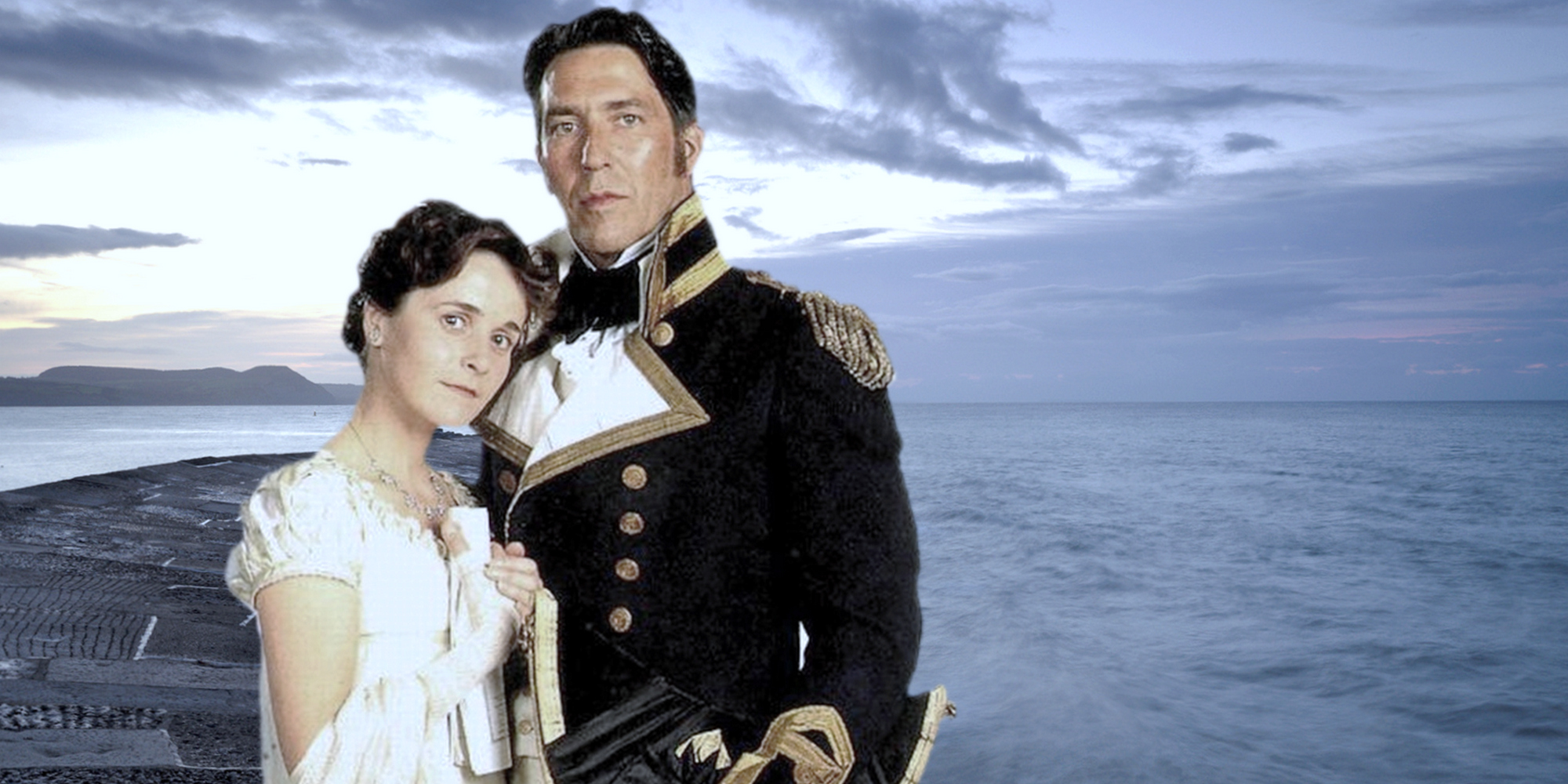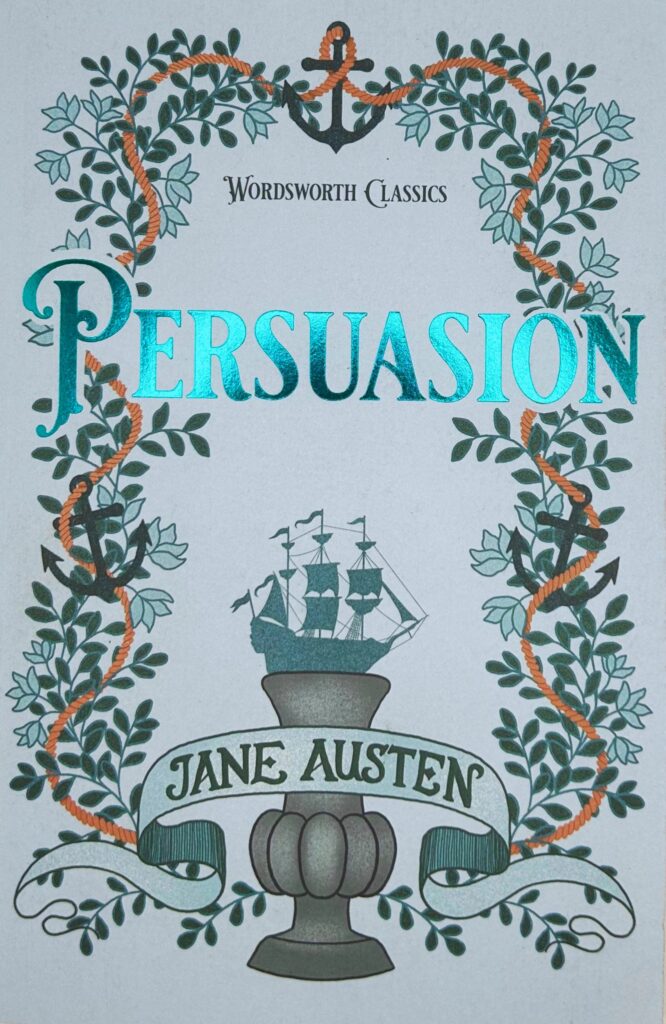
Jane Austen and Naval Warfare
David Ellis delves into the nautical background of Austen’s ‘Persuasion’
Anne Elliot, the heroine of Jane Austen’s Persuasion, is described as having fallen in love with a naval officer at the age of nineteen. She is the daughter of a baronet, but Wentworth (as the young officer is called) has no family connections worth speaking of, and none of that `interest’ which Austen, as the sister of two brothers who had joined the navy, well knew was very important in getting on in that particular profession. He also has no money but the date is 1806, Napoleon has just put in place his `continental system’ and the British retaliated by establishing their own blockades, encouraging their sailors to intercept as many ships bound to and from France as possible and do as much damage to French commerce as Napoleon was trying to do to theirs. This encouragement for legalised piracy is assumed rather than described in the novel and represents an ideal opportunity for an enterprising man like Wentworth to make his way in the world. He urges Anne to unite her destiny to his but she is influenced by an old friend of her dead mother, Lady Russell. In addition to looking askance at Wentworth’s undistinguished family origins, she feels he is what the insurance firms would call a bad risk and persuades Anne to break off the relationship.
When the novel opens it is 1814, the wars appear to be over and Captain Wentworth has returned to shore £25,000 richer than when he left. He is thrown again into Anne’s company because his sister has married an admiral who has presumably done even better out of the wars than Wentworth and can afford to rent the family home and estate of Anne’s father, a vain, stupid individual who has been nourishing a sense of his own importance by living beyond his considerable means. The baronet goes off to superior rented accommodation in Bath with his eldest daughter, Elizabeth, but Anne stays behind in order to help out her other, younger sister Mary. She has married Charles Musgrove, the heir to a more modest country estate in the area and a man whose younger brother had, before his death abroad, happened to have served for a while under Wentworth. This makes the captain a favourite guest of his parents in their large country house and, relatively early in the action, he gives the assembled Musgrove family an account of his first command, a broken-down ship called the Asp with which he was able to capture `privateers enough to be very entertaining’ and in which, on his way home from the West Indies, he had `the good luck … to fall in with the very French frigate [he] wanted’. Nor did his luck desert him in that, six hours after he had brought his captured French ship into Plymouth, there was a tremendous storm which he is sure the Asp would not have survived.
One hint some readers may pick up from Wentworth’s account is that Lady Russell perhaps had a point in thinking of him as a bad risk in 1806; but my concern here is with what his words tell us about how he managed to become so rich. A note in the Cambridge edition of Persuasion provides one or two clues but for a more detailed explanation you have to go to Richard Hill and his book with the self-explanatory title, The Prizes of War: The Naval Prize System in the Napoleonic Wars, 1793-1815. Even that, however, does not quite make clear why Wentworth should have thought capturing privately owned and operated vessels who had a license from the French (or the Americans) to prey on British merchant shipping `entertaining’. He may of course only be showing off but another possible reason for using that word is that, although privateers would be armed, they were very unlikely to be much of a match for a British warship, however broken down it may have been. What he goes on to indicate, however, is the superior significance of capturing a French frigate. As Wentworth makes clear, this did indeed involve serious fighting, but more important than the honour and renown a successful sea battle brought was the superior monetary value of an enemy frigate, especially since the Navy itself would be very likely to buy it at market prices. Hill gives the example of a French frigate captured in 1809 the total net value of which for its captors was over £28,000. A quarter of this came from the Navy’s purchase of the hull (the tonnage of captured vessels converted to British use during the wars was equivalent to over half that of new-built ships); but then there was the ordnance, the stores and £5 for every crew member, alive or dead.
Before 1808, the captain of the ship responsible for a capture such as the one Hill describes would have been entitled to three eights of this total sum, or only a quarter if he was acting under the orders of a superior officer (an admiral, for example), who would then pocket the relinquished eighth. So much to one or two individuals must have been felt to be a little unfair. Hill cites the case of a French frigate captured in 1797 by a British ship called the Phoebe under the command of a Captain Barlow. Estimating the crew of ordinary seamen on the Phoebe at 200, he calculates that each of them would have received about £17, over half a year’s salary and not bad (he writes) for `an hour’s hot work’. Not bad perhaps but obviously not as good as Barlow’s own £3535, 10 shillings. Hill reproduces in his book a well-known cartoon in which, just before the battle of Trafalgar, an ordinary seaman is shown kneeling in front of one of his ship’s cannons. When an officer asks him if he is afraid, the seaman replies that he is only praying that the coming grapeshot will be shared out according to the same formula for the distribution of prize money. In 1808 there were modest alterations to this formula which benefited the middle ranks but still made capturing another ship an extraordinary profitable business for those members of the top brass with the courage, daring, and skill to bring it off. Wentworth has clearly been one such member, and so presumably has his brother in law, Admiral Croft. It is the admiral who, relatively early in the novel, says that he hopes that he and his wife `will have the good luck to live to another war’, without any of that apprehension in his tone which the prospect of warfare usually brings. This would seem to be because, for naval officers of his kind, a war was above all an opportunity for making pots of money. Austen is of course deeply committed to an ironic mode yet as far as I can tell, there is no irony in her descriptions of the enthusiasm with which people like Croft and Wentworth talk about warfare and, startling though it may be to say about a great novelist, and putting aside Austen’s understanding of the anxiety the wives of naval officers are likely to feel when their husbands go off to war, she appears distinctly unimaginative about its human consequences. It is true that Wentworth has a friend called Captain Harville who has not been as lucky as he has and is also suffering from having been wounded. But very little emphasis is placed on his misfortunes. In the `hot work’ which capturing enemy ships involved, the number of deaths on both sides which Hill gives suggests that they tended to amount to about a fifth of the total crews. But he has no figures for the wounded. The consequences for Harville would appear to be that he is now obliged to live on half pay and in a very modest way; but for ordinary seamen they could be desperate. Anne is pleased that Admiral Croft and his wife have taken over her family home because she feels that they will prove responsible landlords and do their duty in helping the local poor. In a small village, these people may not have included many if any ex-servicemen but, after 1815, the towns at least were chock full of men lacking arms or legs who were of course from the army as well as the navy, and who often only had the charitable feelings of the general public to rely upon.
Books associated with this article

Persuasion
Jane Austen
